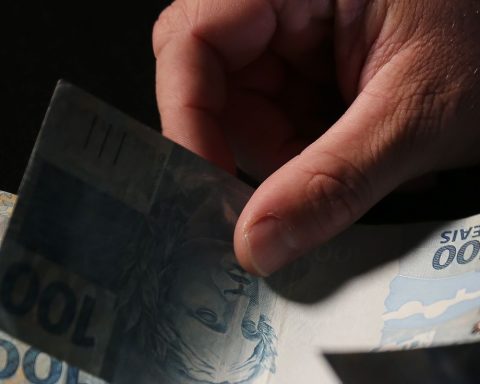When we talk about the special context, we cite the case of the appointment of Horacio Cartes, the fierce colorada intern, the unprecedented coalition of the opposition and huge media groups and, despite this, the victory by a wide margin of Santiago Peña.
JR: One of the most common mistakes that they tend to make when trying to install an issue to harm or benefit a political sector is to confuse the general opinion of society or the electorate on specific issues with the political microclimate. The latter is generated mainly in social networks, especially Twitter, and does not always represent what the general public really thinks. It is important to highlight that the general opinion of the electorate and the political microclimate are different concepts, and that their confusion can have important consequences in political analysis and decision-making in the public sphere. The political microclimate is often associated with interest groups or online communities that have a specific interest in a particular political issue or sector.
JR: If public opinion is confused with the political microclimate, various errors can be made in political analysis and decision-making. Some of those most common mistakes, according to our experience, are: overestimating the importance of social networks: you can come to believe that what is said on social networks, especially on Twitter, is what the majority of the population thinks. This can lead to making decisions based on a distorted view of reality. Ignoring the diversity of opinions: you can fall into the mistake of believing that all opinions are the same and that they can be grouped into a single category.
:quality(70)/cloudfront-us-east-1.images.arcpublishing.com/lanacionpy/ZRI3LOQWJZFNJLIVQU27Q6ZFVM.jpg)
The networks lead to the error when homogenizing the concept: thinking that everyone thinks in one way because a majority that thinks thinks that way.
JR: We noticed that when something important or controversial came up in the political realm, a topic was quickly generated on social networks that was supported by the majority of the official media outlets and Twitter accounts of politicians, and then replicated by the majority of users. what they thought on the subject. However, when conducting polls, we realized that the general public opinion was different. Some of the most notable topics where we found this discrepancy were: Opinion on the ANR: After they created the #ANRNuncaMás campaign on social media in 2021, we conducted several public opinion measurements to assess the impact that the ANR had on the electorate. criticism of the party. However, we were able to observe that the rejection of the ANR never exceeded 50%, not even in the strongest moments of said campaign against the Colorado Party. When measuring in different parts of the interior of the country, we found that the rejection average was less than 40%.
The “ANR never again” campaign is an example of the divorce between the microclimate of the networks and real reality.
JR: It is important to mention that the negative opinion of the electorate about the government of Mario Abdo was not mixed with the opinion that was held about the ANR. This can be easily explained when considering that the ANR represents the majority of the national register, while Mario Abdo had a rejection of 72% in the general electorate and 64% within the party itself.
JR: In our polls, more than 70% of the electorate expressed a desire for change in Paraguay, but when asked if Alegre represented that change, most believed him to be a figure of old politics. On the other hand, Santiago Peña was seen as a figure of renewal both inside and outside the Colorado Party, while Payo Cubas was perceived as a completely independent candidate. On social networks, the situation was different, since a majority of opinions spoke of Alegre as the only possible change, Peña as the continuation of the mismanagement of the current government, and Cubas as the “satellite” candidate of the Colorado Party. However, the association of images in politics is very important and the Concertación, acting as co-government for more than four years, generated a lot of rejection among the electorate, according to our measurements.
When people talked about change, they did not think of Efraín because they were almost a co-government with Abdo for four years, and Abdo had 72% rejection.
JR: Clear. This false perception generated by the microclimate of social networks made the Concertación strategy err by creating an anti-HC campaign, instead of taking advantage of Mario Abdo’s high rejection to associate the image of Santiago Peña with the current president. and harm him during the campaign.
They did not know how to capitalize on the very high rejection against Abdo Benítez because they were too dependent on the fight with HC.
JR: In Paraguay, on social networks, especially on Twitter, a majority opinion can be perceived in favor of controversial issues such as equal marriage, abortion and the legalization of drugs, among others. However, polls show that the majority of Paraguayans reject these issues. The electorate in Paraguay is largely conservative, and these issues generate a rejection that ranges between 60% and 80%, depending on the issue in question. In summary, it is important to take into account that the political microclimate in social networks does not represent the opinion of the entire society and its confusion with public opinion can lead to errors in political analysis and decision-making.
JR: It is necessary to carefully analyze the political microclimate and contrast it with other sources of information in order to have a more complete and objective view of public opinion.
The survey continues to be the most effective tool to find out the opinion of the majority of citizens or voters. Although its implementation can be expensive and complex, it should be considered as the main tool to create political strategies based on the results obtained.
The survey continues to be the most effective tool to find out the opinion of the majority of citizens or voters.
JR: The ANR managed to win the elections due to various factors. First of all, it is crucial to understand that the party is not homogeneous, but is made up of different groups. From an external perspective, there is the mistaken belief that all Colorados share the same opinion and support the same candidate because they are always Colorado, when in reality there are internal differences.
Those who were influenced by the political microclimate of social networks in Asunción might have concluded that independent voters were completely in favor of the Alegre candidate. However, if we expand our perspective to the national level, this phenomenon was not observed. In reality, the ANR achieved victory thanks to its colorado identity. It is important to highlight that the colorada identity has evolved and has become broader today. It is no longer limited to the symbolism of the horse, the flag and the red polka. Those who did not recognize this change and did not understand the breadth of the colorado identity stumbled when interpreting the political situation.
The networks lead to the error when homogenizing the concept: thinking that everyone thinks in one way because a majority that thinks thinks that way.
The “ANR never again” campaign is an example of the divorce between the microclimate of the networks and real reality.
The survey continues to be the most effective tool to find out the opinion of the majority of citizens or voters.















